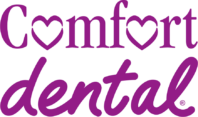Daily Steps That Protect Your Teeth
Keeping your smile healthy and bright requires more than just the occasional trip to the dentist. At Comfort Dental, we believe that excellent dental hygiene starts at home with consistent daily care. Whether you’re trying to prevent cavities, improve gum health, or simply enjoy fresher breath, taking small steps each day can lead to long-lasting oral health. Here are expert-recommended dental hygiene tips that can help you protect your teeth and gums between dental visits.
Brush Properly and Consistently
Brushing your teeth twice a day is the cornerstone of dental hygiene. However, how you brush is just as important as how often. Use a soft-bristled toothbrush and fluoride toothpaste, and aim to brush for two full minutes each time. Gentle circular motions remove plaque more effectively than aggressive scrubbing, which can wear down enamel and irritate gums.
Don’t Forget to Floss
Flossing at least once a day helps clean the tight spaces between teeth that your toothbrush can’t reach. Skipping this step can lead to plaque buildup, gum inflammation, and eventually gum disease. Make it a daily habit to gently slide the floss between teeth, curving it around each tooth to remove debris and plaque.
Choose the Right Oral Care Products
Fluoride toothpaste, alcohol-free mouthwash, and dentist-recommended floss can make a big difference in your daily routine. If you’re uncertain which products are best for your needs, your dentist can offer personalized recommendations based on your oral health. Specialty tools like interdental brushes or water flossers can also be helpful additions.
Watch Your Diet
Sugary snacks, sticky candies, and acidic beverages can damage tooth enamel and feed bacteria. A balanced diet rich in fiber, calcium, and vitamins supports healthy teeth and gums. Drinking plenty of water throughout the day also helps rinse away food particles and bacteria.
Visit the Dentist Regularly
Even with the best at-home care, regular checkups are essential. Your dentist can identify issues early, provide professional cleanings, and help you stay ahead of potential problems. Most people benefit from two dental visits per year, but your dentist may recommend more depending on your needs.
Quit Smoking or Using Tobacco Products
Tobacco use is one of the leading contributors to poor dental hygiene and oral health. It can stain teeth, irritate gums, increase your risk of oral cancer, and delay healing after dental procedures. Quitting tobacco is one of the most powerful ways to protect your smile.
Replace Your Toothbrush Often
Old, worn-out toothbrushes don’t clean effectively and can harbor bacteria. Replace your toothbrush (or toothbrush head, if electric) every three to four months, or sooner if the bristles become frayed. After being sick, it’s also a good idea to start fresh with a new toothbrush.
Pay Attention to Your Gums
Healthy gums should be firm, pale pink, and not bleed when brushed or flossed. Swollen, red, or bleeding gums could be early signs of gum disease. Practicing consistent dental hygiene and getting timely dental care can stop gum issues from progressing into more serious conditions.
Be Aware of Dry Mouth
Saliva plays a key role in dental hygiene by washing away bacteria and neutralizing acids. If you experience dry mouth due to medications or other conditions, ask your dentist for tips to increase saliva flow. Chewing sugar-free gum, staying hydrated, and using special rinses may help.
Use Proper Technique for Kids and Seniors
Children and seniors may need special attention to maintain good dental hygiene. Kids should start brushing as soon as teeth erupt, with adult supervision until they can brush effectively on their own. Seniors may need assistance if dexterity becomes an issue, and should be vigilant about dry mouth, gum sensitivity, and denture care.
Daily Habits That Support Dental Hygiene
- Rinse with water after eating if brushing isn’t possible.
- Chew sugar-free gum between meals to stimulate saliva.
- Avoid snacking frequently, especially on sugary foods.
- Use a tongue scraper or gently brush your tongue daily.
- Schedule dental visits twice a year, even if everything feels fine.
Common Mistakes to Avoid
- Brushing too hard or too fast.
- Using a toothbrush longer than recommended.
- Ignoring bleeding gums.
- Skipping flossing or mouthwash.
- Thinking mouthwash can replace brushing or flossing.
Good Dental Hygiene Leads to Whole-Body Health
Maintaining good dental hygiene isn’t just about your teeth — it benefits your entire body. Poor oral health has been linked to heart disease, diabetes, respiratory issues, and pregnancy complications. By taking care of your mouth, you’re supporting your long-term wellness.
When to Contact Your Dentist
Any time you notice pain, sensitivity, bleeding, or changes in your teeth or gums, it’s time to make an appointment. Routine dental exams and cleanings allow your provider to catch small issues before they become big problems. Remember, prevention is always easier and more cost-effective than treatment.
